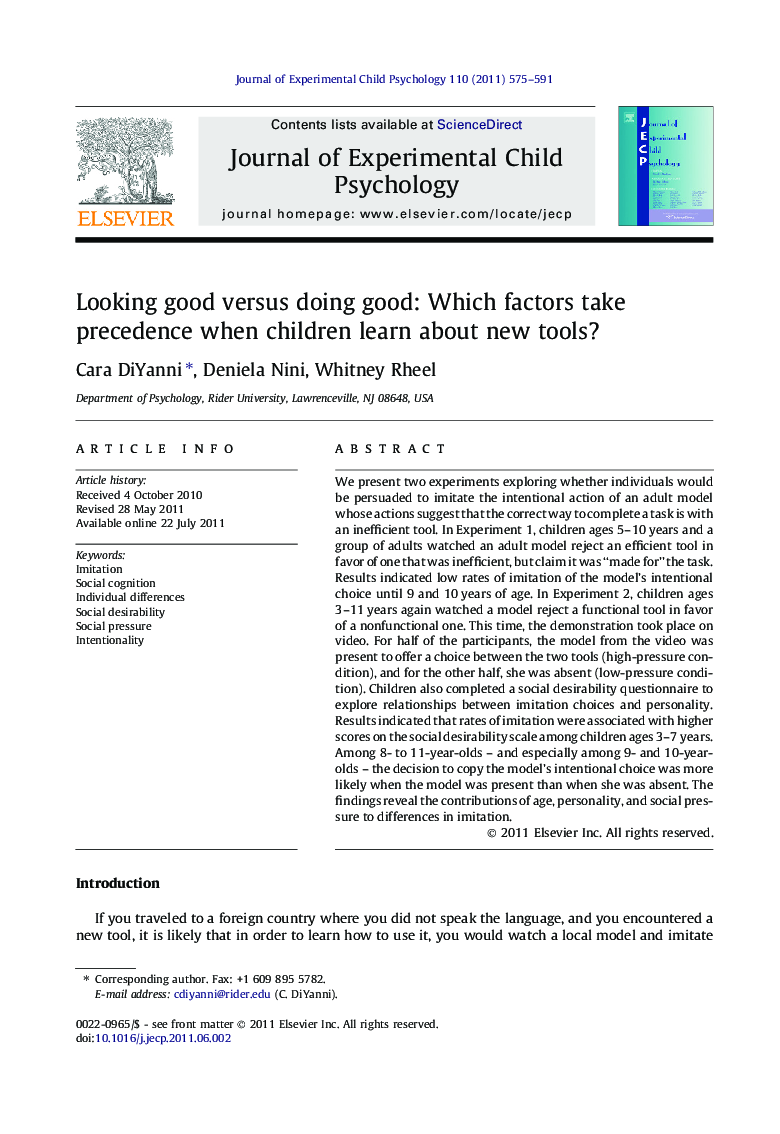| Article ID | Journal | Published Year | Pages | File Type |
|---|---|---|---|---|
| 918358 | Journal of Experimental Child Psychology | 2011 | 17 Pages |
We present two experiments exploring whether individuals would be persuaded to imitate the intentional action of an adult model whose actions suggest that the correct way to complete a task is with an inefficient tool. In Experiment 1, children ages 5–10 years and a group of adults watched an adult model reject an efficient tool in favor of one that was inefficient, but claim it was “made for” the task. Results indicated low rates of imitation of the model’s intentional choice until 9 and 10 years of age. In Experiment 2, children ages 3–11 years again watched a model reject a functional tool in favor of a nonfunctional one. This time, the demonstration took place on video. For half of the participants, the model from the video was present to offer a choice between the two tools (high-pressure condition), and for the other half, she was absent (low-pressure condition). Children also completed a social desirability questionnaire to explore relationships between imitation choices and personality. Results indicated that rates of imitation were associated with higher scores on the social desirability scale among children ages 3–7 years. Among 8- to 11-year-olds – and especially among 9- and 10-year-olds – the decision to copy the model’s intentional choice was more likely when the model was present than when she was absent. The findings reveal the contributions of age, personality, and social pressure to differences in imitation.
► We present children with a model who intentionally chooses an inefficient tool for a task. ► In Experiment 1, 9- and 10-year-olds imitated at higher rates than other age groups. ► In Experiment 2, younger children scoring high in social desirability imitated at higher rates. ► In Experiment 2, older children imitated more frequently when the model was present than absent.
